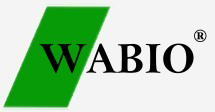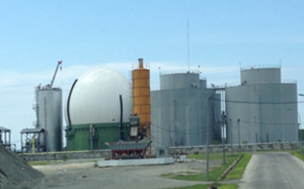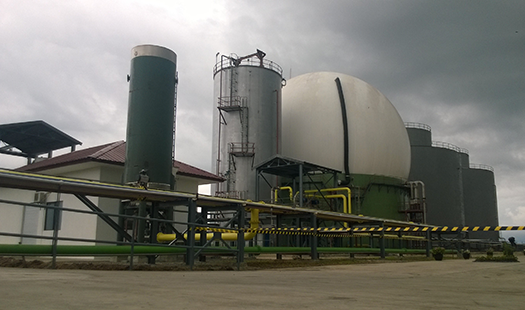WABIO® Technologies
 WABIO® Technologie GmbH is a premier German technology developer focusing on generating energy from industrial waste and residual materials. Established in 1990 in Gera, East Germany, WABIO’s technology is based on over 20 Years of R&D. It has a proprietary and patented methane fermentation process using waste lignocellulosic material such as rice husk, rice straw, wheat straw, sugar mill press mud, distillery spent wash, brewery spent grain, food waste, empty fruit bunches, etc.
WABIO® Technologie GmbH is a premier German technology developer focusing on generating energy from industrial waste and residual materials. Established in 1990 in Gera, East Germany, WABIO’s technology is based on over 20 Years of R&D. It has a proprietary and patented methane fermentation process using waste lignocellulosic material such as rice husk, rice straw, wheat straw, sugar mill press mud, distillery spent wash, brewery spent grain, food waste, empty fruit bunches, etc.
WABIO Technology Advantages
- World’s only industrially proven method for efficient biological utilization of high concentrate lignocellulose and protein feedstock
- Biotechnological treatment absolutely free of oxygen; can be used for extremely acidic (pH<4) feedstocks or hydrolysates
- Proven and need-based modular plant system for industrial-scale production of bioenergy, biofuel, and organic fertilizer
- High efficiency by
- processing inputs with biotechnological hydrolysis
- using a proprietary bacterial culture continuously reproduced in WABIO fermenters; no need of repeated input of methane bacteria (like cattle manure)
- thermal drainage of high ammonium containing fermentation products without any ammonia loss
- sale of excess electrical and thermal energy
- specific application of hydraulically mixed large-scale fermenter/secondary fermenter, fermentation residue phase separation, and hydrolysis
- simultaneous floating and sinking sludge extraction that can be continuously used for media with high levels of light and/or heavy particles


WABIO Technology Applications
WABIO® technology is ideal where alternative techniques for the wet fermentation for energy and material recycling of biogenic substrates are not available. The following substrates can be converted into biogas:
- From a previous chemical treatment (cellulose production, paper making, paper processing)
- From a previous thermal treatment (beer production, Bioethanol production, oil extraction, potato, manioc and tapioca processing, canning, fruit and vegetable processing)
- High lignocellulosic components (grain silos, mills, breweries, distilleries, sugar cane processing, starch factories, paper mills, wood processing plants, straw utilization)
- High carbohydrate content (breweries, distilleries, flour/starch mills)
- High urea concentrations (poultry farms)
- High dry matter content, coupled with biofiltrate recycling requirements (grain cleaning residues, rice husk, straw, milling by-products, malt dusts, old bakery as waste from large bakeries, dry baked goods factories, pizza bakeries)
- Stringent emission control requirements (sewage treatment plants, urban food farms, biomass utilization in protected areas such as biosphere reserves, protected areas, flora and fauna habitat areas)
For further information please visit the website www.wabio.de







